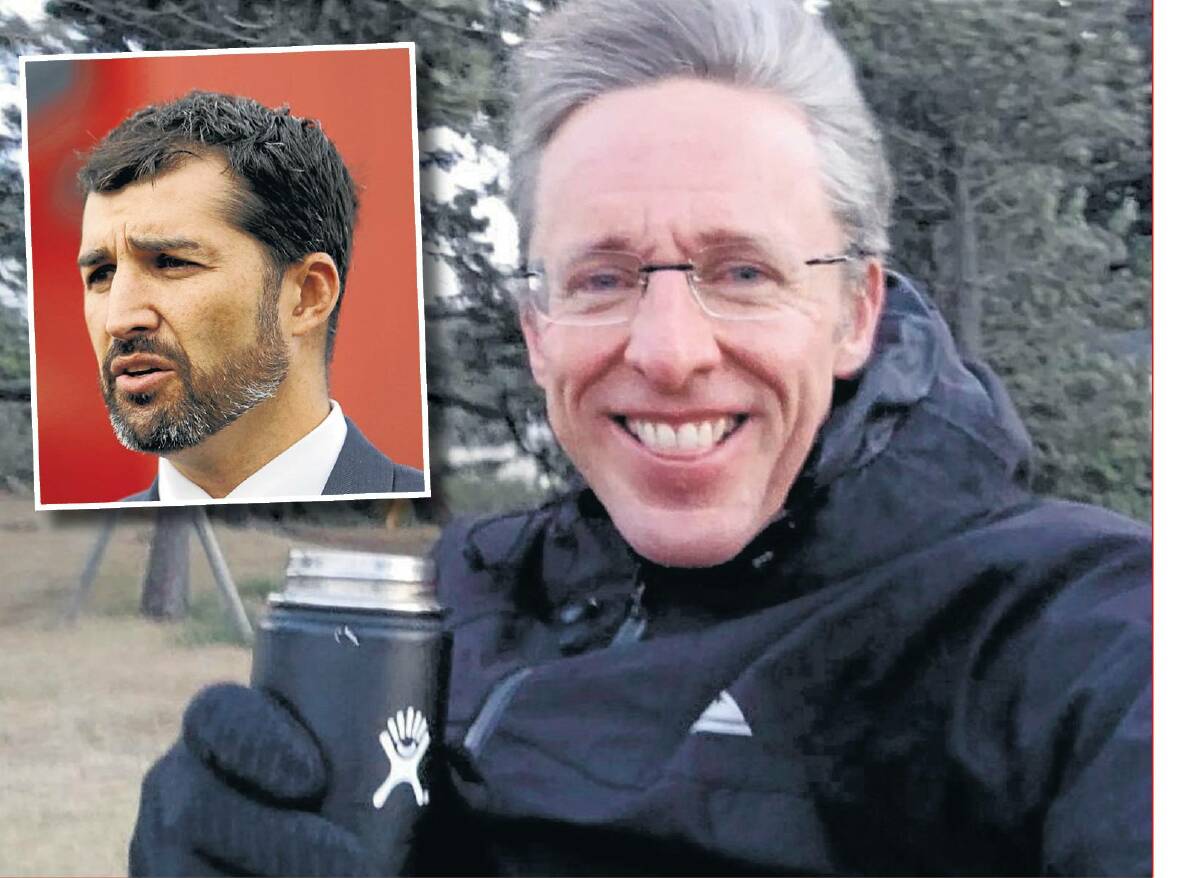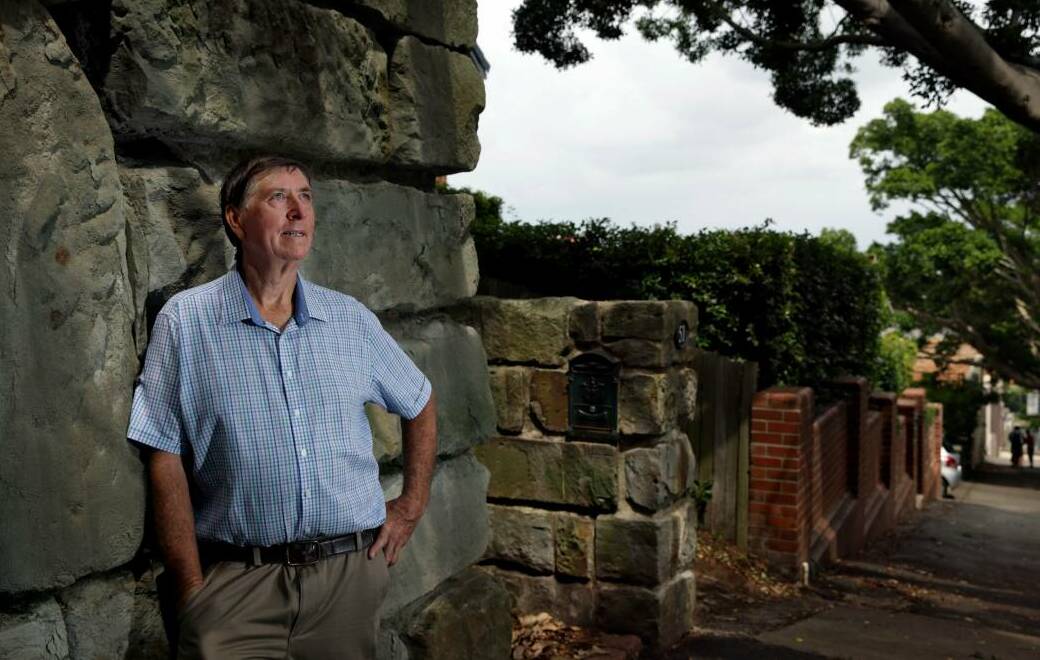
THE minister responsible for local government in NSW has refused to acknowledge concerns of a "sham" investigation over a code of conduct complaint relating to City of Newcastle CEO Jeremy Bath, indicating there will be no oversight of the controversial inquiry outside of the Labor-led council.
NSW Local Government Minister Ron Hoenig and the Office of Local Government (OLG) this week completely dodged a series of questions on the investigation into Mr Bath's links to a misleading letter-writing campaign, authored by his friend in Japan, Scott Neylon.
The Newcastle Herald revealed last week that a complaint sent to lord mayor Nuatali Nelmes about Mr Bath was excluded from the inquiry.
After a day of waiting, Mr Hoenig's advisor informed the Herald this week that the minister would not answer questions about the issue.
At the same time, his department responded to a series of questions put by Herald, but did not answer them.
The key question of whether the department will seek a review of the investigation was simply ignored.
Mr Hoenig and the OLG's decision to turn a blind eye to the matter indicates there will be no oversight of the controversial investigation outside of the Labor-led City of Newcastle.

Call for review
Opposition Minister for the Hunter Scott Farlow said the failure to act raised serious questions about the checks and balances in the NSW Labor government's system designed to set minimum standards for council officials across the state.
Mr Farlow called on Mr Hoenig to restore faith in City of Newcastle by ordering a review of the investigation.
"There are serious questions being asked about the Newcastle council code of conduct review, raising concerns about the adequacy of the investigation," Mr Farlow said. "It's time Minister Hoenig listens to the community and takes action to review the investigation. The Newcastle community deserves a fully functioning council, which Labor have failed to deliver."
The council's code of conduct and a separate document spelling out how the code should be administered reveal the rules which apply to the investigation.
Both documents are based on the OLG's Model Code of Conduct and procedures documents. According to the procedures document, the OLG has the power to review investigations.
"The office may, at any time, whether or not in response to a request, review the consideration of a matter under a council's code of conduct where it is concerned that a person has failed to comply with a requirement prescribed under these procedures or has misinterpreted or misapplied the standards of conduct prescribed under the code of conduct in their consideration of a matter," the procedure document reads.
Council contractor Pinnacle Integrity's investigation report into Mr Bath's links to a series of misleading letters penned under his best friend's name has not been made public, but the Herald has seen excerpts from the document.
It reveals that a complaint made by Maritime Museum Society president Bob Cook, about a letter published under the name Scott Neylon in the Herald in August 2019, was tossed out because it was lodged more than three months after the letter was published.
But the ruling appears to have ignored part of the timing clause outlined in council's code of conduct procedures. According to the final investigation report, the complaint about the 2019 letter was excluded under clause 4.4.
"Mr Cook was of the view that the letter was either written by Mr Bath or that Mr Bath provided confidential information to Mr Neylon," the investigation report reads. "[This allegation did not meet the criteria outlined at clause 4.4 of the procedures and therefore does not form part of this investigation]."
Clause 4.4 states "a code of conduct complaint must be made within three months of the alleged conduct occurring or within three months of the complainant becoming aware of the alleged conduct".
The first part of Mr Cook's complaint to Cr Nelmes refers to an unpublished letter to the Herald from July 2023 and a published letter from August 2019.
The second part of Mr Cook's complaint was about the closure of the maritime museum. Only the July 2023 letter was investigated, and the other parts of the complaint were excluded under clause 4.4.
Mr Cook said it was "clear" that the first part of clause 4.4 was "wrongly used to get rid of my complaint".
"There was no regard for the fact that I only just found out about the relationship between Mr Bath and Mr Neylon and that was the reason I wanted the matter investigated," he said.
"The second half of the clause was conveniently ignored."

The justification used to exclude the complaint has raised serious questions about the effectiveness or otherwise of the code of conduct investigation, which found Mr Bath did not have a case to answer.
Mr Cook has written to Minister Hoenig and the Independent Commission Against Corruption seeking a review of the investigation, claiming part of his compliant was "unjustly" ignored.
He believes clause 4.4 was used as part of a "carefully orchestrated plan" to investigate as "little as possible".
If the matter is not going to be reviewed, he would like to know why.
"I'm concerned that they have powers they are not using for a reason that I fail to understand," Mr Cook said.
"The way my complaint was handled was not correct by the procedures set out by the Office of Local Government, it makes no sense to me why they would not be interested in this issue."
Deafening silence
The NSW government's deafening silence on the issue has cast further doubt over the efficacy of the process, which has so far failed to answer key questions about the long-running controversy that continues to plague the highest levels of the council.
Mr Cook lodged his two-part complaint with Cr Nelmes on July 30 last year, just days after learning via the Herald that dozens of letters and online comments had been published in media outlets over 13 years under the name Scott Neylon, which twist the truth, distort reality and follow Mr Bath's career progression, attacking his critics and supporting his employers.
Mr Neylon is Mr Bath's best mate and has lived in Japan since at least 1998. Mr Bath has repeatedly denied any involvement in the letters.

Several of the letters attack Mr Cook, a long-term critic of the council, for his role in the maritime museum.
The Herald asked Cr Nelmes last week about why clause 4.4 was used to get rid of Mr Cook's complaint about the 2019 letter. A council spokesman said Cr Nelmes referred multiple complaints sent to her from Mr Cook to the council's complaints coordinator, Emily Kolatchew.
"The complaint sent to the lord mayor dated 30 July 2023 was dealt with in line with the procedure and included two parts," he said.
"The part relating to allegations regarding letter writing was referred from the [complaints coordinator] to a third party investigator. The part relating to a separate matter was assessed by the [complaints coorindator] and declined at the outset in line with the procedure."
The council's response failed to address why clause 4.4 was used to exclude the complaint about the 2019 letter, or how that decision was made.
Mr Cook said he found it hard to believe that there was no oversight of the code of conduct process. If clause 4.4 was applied the way it was to Mr Cook's complaint about the 2019 letter, at least 16 of the 19 letters received by the Herald under the name Scott Neylon would be excluded from investigation.
Only three were submitted within three months of the Herald revealing the links between Mr Neylon and Mr Bath.
"If the state government is refusing to show any interest in this, I don't understand how the general public can have any faith in this system," Mr Cook said.
"This just allows councils to do whatever they want, they are untouchable."
'Unaccountable private consultants'
NSW Greens spokeswoman for local government Dr Amanda Cohn, who served as deputy mayor on Albury Council for five years, said the OLG should lead the implementation of the code of conduct system.
"The matter at the City of Newcastle is a perfect example of what's wrong with the current code of conduct system - where investigation is often outsourced to unaccountable private consultants," she said.
"The current code of conduct system is slow, expensive, and opaque. There are examples across NSW of it being used to gag, intimidate and shame political rivals at the same time as failing to deliver justice where serious misconduct has occurred."
Dr Cohen said communities deserve a code of conduct system that can provide confidence in good local government governance, but unfortunately that is not the case.
"Code of conduct reviewers are often consultants in the private sector with little accountability and inconsistent results," she said. "The Office of Local Government should lead the implementation of the code of conduct but have very little capacity and should be better resourced."
'Councils have the responsibility'
An OLG spokesman said the investigation was a matter for City of Newcastle.
"The Office of Local Government does not have the authority to investigate a code of conduct complaint about a general manager and had no involvement in the investigation into allegations made against Mr Bath," he said.
"Councils, as democratically elected authorities, have the responsibility to manage allegations regarding the conduct of general managers in accordance with the Procedures for the Administration of the Model Code of Conduct for Local Councils in NSW."
The spokesman ignored questions about whether the OLG would review the City of Newcastle investigation into Mr Bath. He also refused to answer questions about the procedures not being followed in the Bath investigation and clause 4.4 being used to "unjustly" throw out a complaint.







